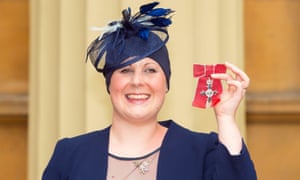He’d been rushed the day before to our surgical emergency unit. An elderly man, crying out in pain, he’d looked haggard, gaunt and frightened as we wheeled him straight to the CT scanner. Now, stripped of his clothes and draped in a gown, he stared up in trepidation as my consultant surgeon, impatient to be done with his morning ward round, stopped by the bedside. Without so much as an introduction, this experienced doctor broke the news to the patient of his terminal illness by turning to the bedside entourage and muttering, perfectly audibly: “Get a palliative care nurse to come and see him.” No one had even told “him” he had cancer.
As panic began to rise in my patient’s face, I remember catching the ward sister’s eye to see her cringing alongside me. The ward round had already swept on. I felt sick, complicit in something barbaric. But, as an inexperienced house officer barely qualified as a doctor, I scuttled dutifully after my boss, leaving someone else to pick up the pieces.
Related: I want my legacy to be that the NHS treats all patients with compassion
For the past five years, one woman has unleashed a quiet revolution to banish such casual brutality from our NHS. My fellow doctor Kate Granger died on 23 July from a rare and aggressive form of sarcoma. Three years ago – without introducing himself or even looking her in the eye – a doctor issued her with a death sentence by telling her that her cancer was inoperable. She told delegates at the annual NHS Confederation conference in 2014: “Without any warning or asking if I wanted anyone with me, he just said, ‘Your cancer has spread’. He then could not leave the room quickly enough and I was left in deep psychological distress. I never saw him again.”
Aged 29, Kate harnessed the inhumanity of her treatment that day to become a tireless campaigner for kindness and compassion in the NHS. Her idea was simple but brilliant. She wanted NHS staff to build vital, caring relationships with their patients by – at the very least – introducing themselves by name. Her #hellomynameis campaign, launched with a single tweet, turned into a nationwide NHS movement, with more than 400,000 frontline NHS staff and innumerable hospital trusts backing it.

Kate didn’t know it but she, more than any other individual, inspired in me zero tolerance of the inadvertent, accidental, all too frequent inhumanity we in the caring professions sometimes display towards our patients. Though we met only once, and I never felt able to tell her she was my unsung heroine, her example imbues my daily practice. Each morning, I prepare for my ward round by slinging a stethoscope round my neck, clipping a pager to my waistband and pinning my name badge carefully to my collar. No patient of mine will know me only as an anonymous, identikit doctor. I greet every one of them with my name and a smile.
The truth is that through her dual perspectives as doctor and patient, Kate forced all of us in the NHS to confront uncomfortable truths about the ways we may unintentionally strip our patients of their dignity and individuality. For me, it started in medical school when, over many months, I dissected skin from muscle, sinew from bone until I’d mastered human anatomy through the precision flaying of a human corpse, but had been forced to wall off something primitive within me that would, from now on, temper empathy with new-found detachment.
That process continued after qualification. If doctors allowed our emotions free reign on the ward, if we empathised in full with the life and death enormities that suffuse every hospital, we’d be useless with grief, no good to anyone. To function, we have to keep ourselves in check, at least to some degree.
Perhaps more than anything, the enemy of compassion in today’s NHS is understaffing. When doctors and nurses are too few on the ground we are left scrabbling, exhausted and demoralised, merely to keep our patients safe. Taking time to connect with our patients as fellow human beings is all too often squeezed out.
Kate reminded us all that kindness, though freely dispensed, is priceless. If we lose our humanity, we are shadows of the doctors we should be. I like to believe that her legacy in part will be that every one of your doctors and nurses might sometimes, thanks to her, intone the same silent plea: “When you lie before me in your hospital bed, distressed, frightened, in pain, vulnerable, may the day never come that I cease to see an individual, a human being in front of me.”
I know I do. Thank you, Kate, for your inspiration.
Join the Healthcare Professionals Network to read more pieces like this. And follow us on Twitter (@GdnHealthcare) to keep up with the latest healthcare news and views.
Kate Granger inspired all of us in the NHS to be more compassionate
Hiç yorum yok:
Yorum Gönder